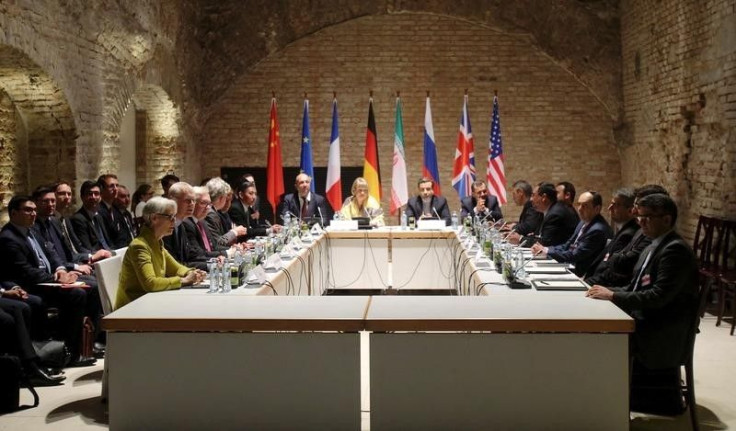Israel Used Computer Virus To Spy On Iran Talks

A leading cybersecurity firm discovered a virus previously linked to Israeli spies in the hotels that hosted the Iran nuclear talks, according to a Wall Street Journal article published Wednesday. After Kaspersky Lab ZAO realized it had been hacked, it searched through millions of its client's computers to find traces of who else had been targeted, and three European hotels were found to have the virus. All three hotels had hosted the negotiations over lifting economic sanctions in exchange for limiting Iran's nuclear program, talks that Israel has continually opposed.
The virus was packed with over 100 modules to enable the hackers to control infected computers. The virus included modules that allowed the attackers to compress video feeds from hotel surveillance cameras to know who was connected to the phones and Wi-Fi networks, to hear conversations and steal electronic files, and to control two-way microphones, computers and alarm systems. It could also figure out the room numbers of specific delegation members.
Kaspersky concluded that the spyware was a variation of Duqu, a virus that is believed to be designed for sensitive intelligence collection by Israel. U.S. officials have known that Israel was spying on the nuclear talks since 2014, which was previously reported by the Wall Street Journal in March. However, at the time, members of Congress seemed generally ambivalent about the prospect of Israel spying on the nuclear talks, according to the Daily Beast. Israel reportedly used information from its spying to lobby members of the U.S. Congress not to support the bill.
Senate Foreign Committee Chairman Bob Corker, R-Tenn., joked that he was more concerned that Israel didn't grant him access to the information, reports the Daily Beast, saying, "[O]ne of my reactions was, why haven't they been coming up here sharing information with me? I mean Israel. I haven't had any of them coming up and talking with me about where the deal is, so I was kind of wondering who it was they were meeting with. I kind of feel left out, if you know what I'm saying."
Sen. Tim Kaine, D-Va., told the Daily Beast the information gathering wasn't spying. "I don't look at Israel or any nation directly affected by the Iranian program wanting deeply to know what's going on in the negotiations -- I just don't look at that as spying," he said. "Their deep existential interest in such a deal, that they would try to figure out anything that they could, that they would have an opinion on it ... I don't find any of that controversial."
Kaspersky did not identify Israel's name in the report but said it was so complex and so dependent on Duqu that it "could not have been created by anyone without access to the original Duqu source code," according to the Wall Street Journal.
Israel has previously denied spying on the U.S. or other allies and declined to comment on the Duqu virus allegations. While Kaspersky did not identify the three hotels that were hacked in their report, all of the hotels that hosted the talks either told the Wall Street Journal that they were unaware of being hacked or declined to comment.
Iran, the United States and five other world powers announced the nuclear deal in April after two years of negotiations.
© Copyright IBTimes 2025. All rights reserved.






















